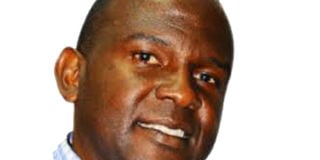Time for former British colonies to step back from ‘royal duties’

What you need to know:
Dependence issue. Consciously or unconsciously enhancing dependence happens to be another ‘royal duty’ that has been carried out with diligence. It is why domestic capacity is neglected in favour of ‘foreign investors.’
As happens very often, when a news story is trending globally like the assassination of an Iranian General, or the bush fires in Australia, many critics chastise Africans for being concerned about matters ‘far away.’ Instead they are asked to focus on their own persistent, predicament of poverty, and other excesses of autocratic leadership.
So it happened when the Duke of Sussex (Prince Harry), who is the sixth in line to the throne of the British Monarchy, and his wife the Duchess of Sussex, Megan Markel, decided they were stepping back from their royal duties as senior royals. They will leave the United Kingdom for North America and work towards financial independence.
Word has it that the British Monarchy has never been the same since Prince Harry married Megan, a mixed race (part of the mixture is black) divorcee. Why does this concern us? We like several African countries (predominantly black people) were once part of ‘the British Empire which comprised of dominions, protectorates, colonies, mandates, and other territories ruled and administered by the United Kingdom.’ (Wikipedia.org)
Between 1894 and 1962 what is now called Uganda was under the reign of the Monarch of Britain as were vast parts of the African continent. The British like other colonialists were not visitors who were invited to a tea party and decided to over stay their welcome.
No, they were (and still are) a group of condescending conquerors who came under the guise of civilising natives who were already civilised. They also appointed themselves to Christianise these pagans and animists as they described non-Christians.
Records of colonial history are littered with all forms of maladies, plunder, genocide, murder, wars, deliberate spread of diseases, exploitation, and slavery, etc. that helped shore up the colonial project. Even the benefits like roads, railways, industries etc had that colonial set up in the middle of the picture. The railway for instance hastened the delivery at a lower cost of bulk raw materials like copper, tin, timber for onward delivery to Britain and fed the industrial revolution.
These arrangements made such countries richer and more powerful while they weakened the colonised and made them dependants. The processing and value adding industries in the production chain were established in the lands of the colonialists while the colonised remained the producers of cheap primary products and raw materials plus labour to feed these industries. All this contributed to strengthening what we now know as world powers. The production of cheap raw materials became the most significant ‘royal duty’ of the colonies now called independent states.
Secondly, for the convenience of the British, well established nations with rulers (kings) like Buganda, Bunyoro, Ankole, Tooro etc. were bundled together to make ‘countries’ with a one-man-one-vote system of electing leaders.
Somehow the system inside these countries allows for leadership and governance that slants towards domination of one ethnic group over others. A president would shamelessly hand pick his village mates, staff them in all positions of power and administration and cynically talk of a government of national unity.
It became the ‘royal duty’ of the President or Prime Minister like Apolo Milton Obote of Uganda plus his successors to keep the colonial project called Uganda together and in due course banish all threats to it. That was the basis of the abolition of Kingdoms in Uganda after the so-called 1966 crisis.
Many times the borders of these countries like the one between Uganda and Kenya were not sensitive to the communities in those areas. So you have Basamiya in both Uganda and Kenya whose villages were sliced by the ‘common border’ and who may need some form of documentation to legally visit their relatives.
Some of the borders drawn by the colonialists in the Berlin Conference of 1884 have been the source of border wars and conflict in places like Eritrea and Ethiopia. This has been a major source of meaningful cohesion of African countries and kept them at loggerheads for easier exploitation and manipulation. Incessant conflicting adds itself to the list as another ‘royal duty.’
These wars and poor governance have been the basis of Africa’s underdevelopment. The continent so vast in mineral and other natural resources is poorest in the world with a huge number of people living in abject poverty. It is also very dependent on foreign aid from the former colonial powers who dictate terms and state conditions detrimental to the continent in order to provide ‘foreign assistance.’ A lot of these funds borrowed with huge interest (in some cases aliens being placed on tracks of land, lakes, future production etc ) are stolen and thus keeping the African dependent in a vicious cycle of borrowing. Consciously or unconsciously enhancing dependence happens to be another ‘royal duty’ that has been carried out with diligence. It is why domestic capacity is neglected in favour of ‘foreign investors.’
Apparently Britain’s former African colonies are so proud of this relationship despite their talk against colonialism. They fall over each other to be part of the British Commonwealth; a glorified club of leaders of former British colonies who meet periodically. Here they stand shoulder- to- shoulder in a dubious relationship of ‘equal partners,’ not to seek reparations or to chastise the British for the wrongs perpetuated by colonialism, but to proudly proclaim the ‘heritage’ and ‘privilege’ of having been colonised by the British. Like Harry and Megan it is time Britain’s former African colonies stepped back from their ‘royal duties’ and sought to be financially independent.
Mr Sengoba is a commentator on political and social issues. [email protected].
Twitter:@nsengoba


